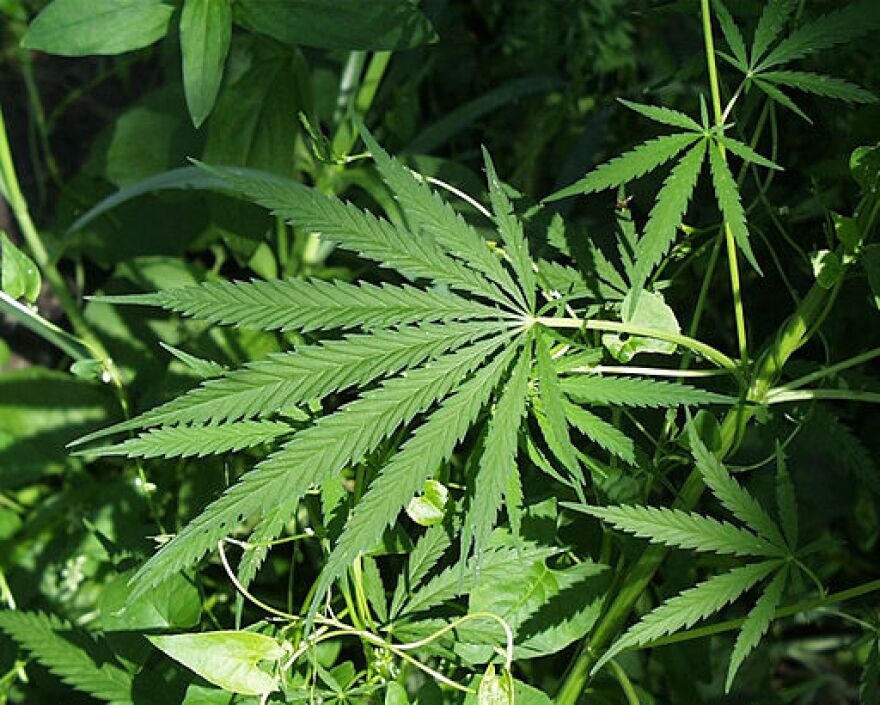New York state legislators are considering legalizing recreational marijuana, but there is opposition to the idea. Smart Approaches to Marijuana officials have visited a number of county legislatures in the state, highlighting what they view as dangers of legalization.
SAM’s Chief of Staff Luke Niforatos is based in Colorado, where recreational marijuana has been legal for five years. He is urging states considering recreational marijuana legalization to go the route of decriminalization instead. In his visits to counties around New York, Niforatos says lawmakers ask about options other than full-on legalization. He talks about decriminalization, expungement and looking into individual marijuana-related policies. There’s another question he often hears.
“What’s it like on the ground living in Colorado? What is it like living in a legalized state? To that, I tell them the story of why I’m involved in this issue, why I’ve spent the last two years travelling across the country to try to share these lessons learned. And that is because every time my wife and I take our 2-year-old daughter out for a walk down the sidewalk — we live in a nice little neighborhood of Denver — and every time we take her out for a walk in her stroller we are covered in a cloud of secondhand marijuana smoke. And that secondhand smoke gets into her lungs and, as parents, there’s nothing we can do about it,” Niforatos says. “And there was one evening a couple years ago that we were walking and this was happening —my daughter was very young at the time — and the smoke was getting into her lungs and we’re, of course, acknowledging that turns to me and she says, I can’t believe this is normal, that anybody, any parent would have to raise their kid in an environment like this. And I turned to her and I thought, this is crazy. This happens all the time. And so that is the kind of environment I don’t want for families, I don’t want for kids.”
And that’s how he became involved in SAM, whose slogan is: preventing another big tobacco. He says it’s a predatory industry coming into play.
“When you legalize, you get total commercialization,” Niforatos says. “You get big tobacco 2.0.”
Niforatos contends that raising state revenue is a weak argument in favor of legalization.
“First of all, this notion that you’re going to make a bunch of money off of legalizing pot is just a complete empty promise. In Colorado, we’re making, it’s 0.78 percent of our state budget, the marijuana tax revenue is,” says Niforatos. “I looked at what the projections are for New York, that’s $300 million. Out of your massive state budget, that is 0.17 percent of New York state budget.”
He says there have been other costs in Colorado, such as deaths and injuries from marijuana-impaired drivers and property crime issues near pot shops. And Niforatos aims to refute what he calls myths, such as pushing to legalize because neighboring states are doing so.
“The other myth is that, oh, all these are legalized. Well, actually, there’s only eight states in the country that have legalized,” Niforatos says. “No state has ever legalized via the legislature. So New York would be the first state in the country to do that. That would be a significant change.”
He says other states have legalized via public referendum. Nifaratos and his colleagues have been travelling through states considering legalization, and his visit to county legislatures in New York has a twofold purpose.
“The first purpose is we want to educate the decision makers and the public on the harms of today’s marijuana and how it’s going in legal states. And this is a failed policy, and we just want to share, look, you’re going to get a lot of promises and none of these are going to come into fruition. So that’s important,” says Niforatos. “Second of all, we’re actually talking to them about, we want them to opt out, but not because we’re worried about legalization happening. We think that there’s enough people very unhappy about this in New York to defeat it. We want them to opt out because that sends a clear message to Albany that, you know what, there are a whole lot of people who do not what this to be legalized in the state of New York, and you better listen because this county does not want it. So that’s why we’re talking to them about the power of their voice in opting out early to send a message to their legislators.”
He recently addressed the health committee of the Ulster County legislature.
“The fact of the matter is the joints of the Woodstock days were 2-4 percent THC; that’s the ingredient that gets you high,” says Niforatos. “And that was the potency, very low potency.”
Today, however, THC levels are much higher and marijuana potency is delivered through a variety of edibles, such as gummies, in addition to traditional joints. Niforatos says legalization negatively impacts low-income communities.
“And I live in Colorado and, in Denver, there is a pot shop for every 47 residents in our poorest communities,” says Niforatos. “This is actually bringing out social injustice, not social justice.”
Niforatos contends recreational marijuana legalization is not inevitable and that the wave is headed in the other direction. SAM, which is based in Washington, D.C., set up in New York in 2018. He says when SAM began its efforts in New York in January, it was a tough haul.
“When we started everyone was saying, it’s done, it’s over, it’s in the budget, legalization is going to pass,” says Niforatos. “We couldn’t even get lobbyists to sign on with our organization.”
But now, he says, this has changed. Still, the push and pull among supporters and detractors in the legislature continues.







